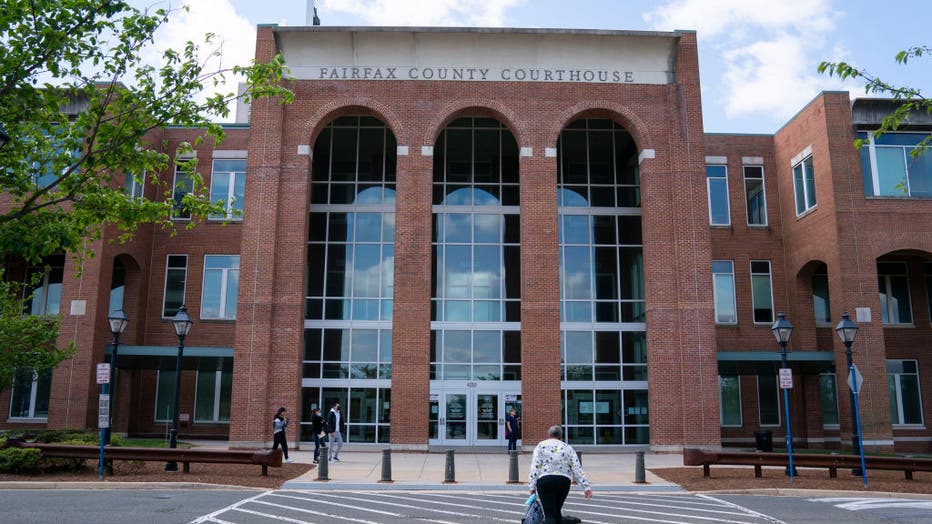
What takes place when divorcing couples battle over embryos?
Attorney Natalia Wilson joins Fantastic Day DC to break down what comes about when partners are divorcing and start off to combat for custody of embryos.
FAIRFAX, Va. – Frozen human embryos can lawfully be thought of assets, or “chattel,” a Virginia choose has ruled, basing his conclusion in component on a 19th century regulation governing the treatment of slaves.
The preliminary viewpoint by Fairfax County Circuit Court docket Choose Richard Gardiner – delivered in a lengthy-operating dispute concerning a divorced spouse and spouse – is currently being criticized by some for wrongly and unnecessarily delving into a time in Virginia heritage when it was legally permissible to very own human beings.
“It’s repulsive and it is morally repugnant,” mentioned Susan Crockin, a law firm and scholar at Georgetown University’s Kennedy Institute of Ethics and an specialist in reproductive technological know-how law.
Solomon Ashby, president of the Previous Dominion Bar Association, a specialist organization made up primarily of African American lawyers, identified as Gardiner’s ruling troubling.
“I would like to imagine that the bench and the bar would be trying to get much more modern precedent,” he claimed.

Gardiner did not return a phone to his chambers Wednesday. His determination, issued last thirty day period, is not final: He has not however ruled on other arguments in the case involving Honeyhline and Jason Heidemann, a divorced few combating above two frozen embryos that keep on being in storage.
Honeyhline Heidemann, 45, needs to use the embryos. Jason Heidemann objects.
In the beginning, Gardiner sided with Jason Heidemann. The regulation at the heart of the situation governs how to divide “items and chattels.” The judge dominated that simply because embryos could not be purchased or sold, they could not be deemed as this kind of and as a result Honeyhline Heidemann experienced no recourse below that law to declare custody of them.
But soon after the ex-wife’s lawyer, Adam Kronfeld, asked the choose to reconsider, Gardiner carried out a deep dive into the history of the law. He found that before the Civil War, it also used to slaves. The decide then investigated aged rulings that ruled custody disputes involving slaves, and mentioned he observed parallels that compelled him to reconsider no matter if the law ought to utilize to embryos.
In a separate portion of his feeling, Gardiner also said he erred when he at first concluded that human embryos simply cannot be marketed.
“As there is no prohibition on the sale of human embryos, they may possibly be valued and marketed, and hence might be thought of ‘goods or chattels,’” he wrote.
Crockin said she’s not knowledgeable of any other judge in the U.S. who has concluded that human embryos can be bought and marketed. She claimed the pattern, if everything, has been to figure out that embryos have to be taken care of in a more nuanced way than as mere home.
Couple sues around alleged incorrect embryo transfer
A couple is suing a Pasadena fertility clinic in excess of allegations of wrongly transferring an embryo in vitro fertilization (IVF) that experienced a unusual and deadly abdomen cancer gene, then furnished an altered health care record to conceal its alleged error.
Ashby stated he was baffled that Gardiner felt a need to have to delve into slavery to answer a issue about embryos, even if Virginia circumstance law is thin on how to cope with embryo custody queries.
“Hopefully, the jurisprudence will progress in the commonwealth of Virginia these that … we will no longer see slave codes” cited to justify authorized rulings, he explained.
Neither of the Heidemanns’ attorneys at any time elevated the slavery situation. They did raise other arguments in support of their instances, having said that.
Jason Heidemann’s lawyers explained letting his ex-wife to implant the embryos they established when they ended up married “would power Mr. Heidemann to procreate from his wishes and for that reason violate his constitutional proper to procreational autonomy.”
Honeyhline Heidemann’s attorney, Kronfeld, argued that Honeyhline’s ideal to the embryos outweighs her ex-husband’s objections, partly due to the fact he would have no lawful obligations to be their mum or dad and partly since she has no other selections to conceive biological small children just after going through most cancers treatments that created her infertile.
Kronfeld also argued that the original separation settlement the few signed in 2018 now taken care of the embryos as house when they concurred — less than a subheading titled “Division of Personal Assets” — that the embryos would stay in cryogenic storage until a courtroom ordered if not.
Gardiner has not still dominated on the argument over Jason Heidemann’s procreational autonomy.





